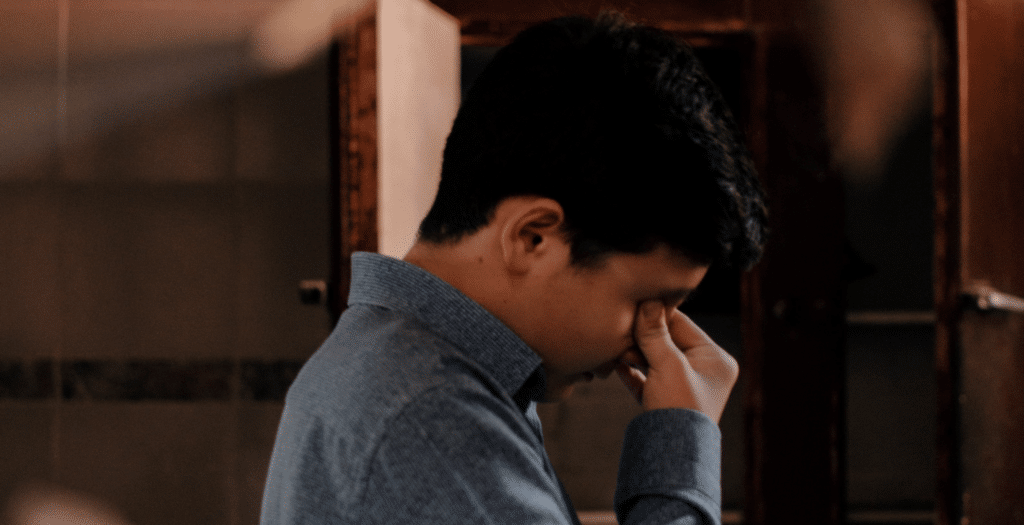Schizophrenia is a serious mental illness that’s surrounded by myths, stigma, and misconceptions. While it isn’t common, it also isn’t as rare as you might think: the disorder ranks 15th in the leading causes of disability worldwide.
Thanks to the media’s portrayal of schizophrenia, many people are afraid of the condition. In reality, schizophrenia is a treatable mental illness, not something to fear. When patients get the right support they’re often able to manage their condition and live a normal life.
Are you wondering whether you or a loved one might be experiencing the early stages of schizophrenia? If so, keep reading to learn more about the condition’s identifying features.
The Signs of Schizophrenia
Four main symptoms appear in schizophrenia. They include positive signs, a term for the presence of abnormal mental functions. They also include negative signs, the absence of normal functions.
According to the DSM-5, a diagnosis requires the presence of at least one positive symptom and one other symptom from these four.
- Hallucinations: hearing, seeing, feeling, smelling, tasting, or experiencing things that aren’t there
- Delusions: holding false, irrational beliefs despite evidence disproving them
- Disordered Thoughts or Behaviors: thoughts and speech become jumbled, blocked, and illogical
- Negative Symptoms: withdrawal, catatonic behavior, lack of facial expressions, monotone voice
To qualify as schizophrenic, patients can’t experience their symptoms as a result of the following:
- substance use or abuse
- severe lack of sleep
- another medical condition or mental health disorder
- trauma response or emotional abuse
While the four main criteria are necessary for diagnosis, they aren’t always the first signs to show up. Let’s look now to some of schizophrenia’s early, subtle signs.
Early Symptoms of Schizophrenia
In the very beginning stages, schizophrenia often presents as difficulty concentrating. A person may notice that they can’t form clear thoughts, hold conversations, or write emails without difficulty. They may also lose their motivation to do even the most basic of activities.
They might start spending more and more time alone until friends and family hardly see them. They may complain of feeling “off” but not being able to put their finger on what’s wrong.
Subtle signs of psychosis may also appear, including:
- increased paranoia and suspicion
- development of strange, irrational, or conspiratorial beliefs
- using made-up words and/or speaking incoherently
- having scary, unexplained perceptual experiences
The crucial thing to note is that people with schizophrenia or other psychoses often don’t realize what’s wrong. That’s what makes it so important for their loved ones to be aware of these early signs and reach out to help.
Prodromal Schizophrenia
Before having an episode, many people with schizophrenia experience a prodrome phase. This collection of symptoms appears a week or two before more serious psychosis arrives.
Prodromal schizophrenia includes many of the early warning signs listed above. It may also involve thoughts or behaviors that are specific to a person’s frequent delusions or hallucinations. Learning to identify prodrome signs gives patients a chance to seek support before an episode begins.

Identifying Early-Onset Schizophrenia
Childhood schizophrenia is also called early-onset schizophrenia or early-onset psychosis. It’s much rarer than the adult condition. “Early-onset” is defined as schizophrenic symptoms that appear and persist before a child turns thirteen.
The diagnosis criteria for early-onset schizophrenia are very strict. Many psychologists look for all four main signs before making a diagnosis. Along with the typical adult symptoms, children might also experience:
- developmental delays
- difficulty in school
- inability to form real friendships
- unable to separate television, games, or books from reality
- frequent complaints of nightmares or “monsters” in their room
Schizophrenia usually develops slowly in kids. Even so, their symptoms can end up being much more severe.
Are Imaginary Friends Hallucinations?
Be careful not to mistake “imaginary friends” for hallucinations and delusions. Some children have overactive imaginations and develop close relationships with fictional people.
This may be an attempt to escape from reality, or it could just be a sign of creativity. Either way, most children outgrow their imaginary friends with time.
Other Serious Mental Illnesses Can Also Cause Psychosis
It’s always important to rule out other causes before diagnosing and treating schizophrenia. This is even more true for children.
For one, the medications and therapy methods that work for schizophrenia won’t always work for other conditions. In some cases, it can even make the problem worse.
Second, the misunderstandings around schizophrenia can harm children’s development. A misdiagnosis may even and keep them from getting the treatment they need.
Here are a few of the other reasons why a child might exhibit hallucinations or delusions:
- severe depression or anxiety
- autism spectrum disorder
- bipolar disorder
- conduct disorder or extreme attention-seeking behaviors
- severe OCD
- brain lesions or tumors
- other psychotic disorders
- medical illness
- trauma response
A psychologist will check for all these causes before moving to schizophrenia. They will also work with the child’s guardians to ensure the issue isn’t related to parenting or trauma. This process can take anywhere from a few months to a year, but it helps to avoid misdiagnoses.
Are You or a Loved One Suffering From Serious Mental Illness?
Schizophrenia, like any serious mental illness, is only diagnosed through rigorous clinical testing. Remember that psychosis can stem from many treatable causes. Talk to a doctor right away if you or a loved one experiences it to get the help you need.
If you get diagnosed with schizophrenia, there is hope. Many patients who go through our compassionate, person-centered programs find the support they need to lead a normal life. Call us today at (714) 790-9784 or visit our admissions page to learn more about the services we offer.





































